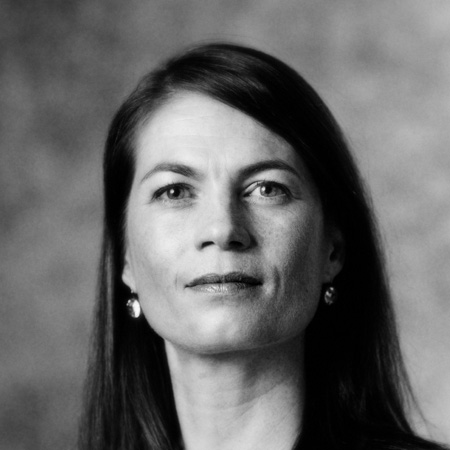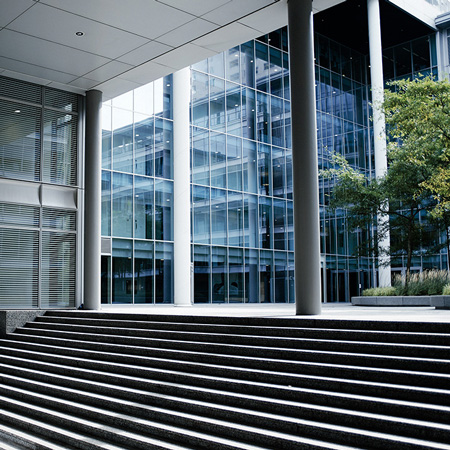
News Update Class Actions
The Hague Court rules that Shell must reduce its CO2 emissions with 45% by 2030
27 May 2021
27 May 2021
In a landmark judgment, the Hague District Court ("the Court") ruled that Royal Dutch Shell (''RDS'') has an obligation to reduce the Shell group's (RDS and the other Shell companies) Scope 1 through 3 CO2 emissions with 45% by 2030 compared to its emissions in 2019. This is the first time that a court order has been granted against a private company obliging the company to reduce its overall CO2 emissions by a fixed percentage within a fixed timeframe.
In this News Update, we present a list of key takeaways from this judgment that are relevant for companies. We also offer a more in-depth analysis of the judgment further below.Ten key takeaways for companies
- The Court considered that every company has an individual obligation to reduce CO2, regardless of existing obligations of states. This individual obligation follows from Dutch tort law: the unwritten standard of due care (an open norm) stipulated in Book 6 Section 162 Dutch Civil Code. This standard of due care is determined by weighing all relevant facts and circumstances of the case. In this judgment, the Court gives particular weight to the UN Guiding Principles which impose a standard of conduct on companies to observe human rights, which standard supersedes national laws.
- In principle this judgment is of interest for all companies seated in the Netherlands, in particular those that can influence CO2 emissions and reduction worldwide directly or indirectly through (group) policy.
- A company's degree of responsibility to reduce CO2 emissions depends on its size and the impact of its CO2-emissions. Companies must take appropriate action in line with their degree of responsibility, which in the situation of RDS could include that it has to reduce its oil and gas production activities and refrain from expansion.
- The obligation to reduce CO2 relates to all types of emissions. Scope 1, 2 and 3 emissions are covered.
- For own activities (both Scope 1 and 2) an obligation of result (resultaatsverplichting) applies to achieve a 45% CO2-reduction, while a significant best-effort obligation (verzwaarde inspanningsverplichting) applies for business relations and consumers (both Scope 2 and 3). The precise extent of this best-effort obligation is still unclear. As an overall reduction of 45% in the total CO2 emissions is required, compensation between the different types of emissions (Scope 1-3) is possible.
- Concerning the reduction path, the Court generally adheres to the IPCC SR15-report (2018), that includes a 45% CO2-reduction in 2030 in comparison to 2010 levels. In the Shell case, however, 2019 (the year the proceeding was initiated) is taken as the reference year.
- The Court seems to establish an obligation for companies to assess and monitor the impact of its Scope 1-3 emissions, irrespective of a company's control and influence over these emissions.
- For (Scope 1-3) emissions that fall within the EU ETS (or similar sufficiently functioning emission trading systems elsewhere in the world) an indemnifying effect (vrijwarende werking) applies. For these types of emissions, the judgment does not impose an additional reduction obligation.
- The Court concluded that RDS' current (group) policy is most likely insufficient to meet the 45% reduction standard. Because the Court deems a violation of the unwritten standard of due care imminent, a court order has been granted that RDS must comply with the abovementioned reduction standards by 2030.
- The judgment is provisionally enforceable, which means that the obligations in this verdict will take direct effect even if RDS submits an appeal.
The judgment
The case against RDS was initiated by several environmental protection groups (''EPG''), which include Friends of the Earth Netherlands (Milieudefensie) and Greenpeace. The EPG argued that the failure of RDS to sufficiently reduce CO2 emissions constitutes an unlawful act (onrechtmatige daad). Article 6:162 of the Dutch Civil Code ("DCC"), which regulates torts, prescribes that a tort can consist of a breach of a duty of due care. To determine the standard of due care in a particular matter a court must take into consideration all relevant facts and circumstances. The EPG claimed that RDS has a general duty of due care under civil law to prevent dangerous climate change, the content of which duty is indirectly determined by articles 2 (right to life) and 8 (right to family life) of the European Convention of Human Rights (''ECHR'').The case against RDS shows important similarities to the recent Urgenda case. In the Urgenda case, the Dutch Supreme Court concluded on 20 December 2019 that the Dutch state had an obligation on the basis of articles 2 and 8 ECHR to prevent 'dangerous climate change' and that the state therefore must reduce its CO2 emissions by 25% by (the end of) 2020 compared to 1990. In the proceedings against RDS, the EPG argued that a similar obligation applies to private companies like RDS.
The Court considered that in order for the EPG's claims to be awarded, two questions needed to be answered: (i) whether RDS has an obligation to reduce its CO2 emissions and (ii), if so, whether RDS is in violation of this obligation.
(i) RDS' obligation to reduce its CO2-emissions?
Regarding the first question, the Court concluded that, under the standard of due care imposed by Article 6:162 DCC, RDS is obliged towards Dutch residents to sufficiently reduce its CO2 emissions to reduce the impact of dangerous climate change. In its decision, the Court took into consideration the urgent need to address dangerous climate change, the common knowledge that significantly reducing CO2 emissions is necessary to prevent dangerous climate change, the amount of RDS's CO2 emissions and the level of influence of RDS over the Shell group and its business relations to reduce CO2 emissions. Furthermore, the Court ruled that although RDS is not directly bound by articles 2 and 8 ECHR (as only states are bound by human rights treaties) these norms are taken into consideration while establishing a standard of due care. RDS therefore has an obligation to prevent that its activities result in infringements of human rights, which includes mitigating dangerous climate change. This is also confirmed by soft law instruments such as the UN Guiding Principles on Business and Human Rights, which is endorsed by RDS.
Importantly, the Court considered that dangerous climate change is a threat to human rights. The responsibility of companies as laid down in the UN Guiding Principles to observe human rights, constitutes a standard of conduct for companies which supersedes national laws. This standard of care requires companies to prevent human rights violation caused by their own activities and to give their best efforts to prevent such violation through their entire value chain worldwide. Taking into account the reduction paths that are necessary according to the Intergovernmental Panel on Climate Change ("IPCC") to prevent a dangerous climate change, the Court concluded that RDS has an obligation of result to reduce the CO2 emissions of the Shell group with 45% by 2030. RDS also has a best-efforts obligation to achieve a similar CO2 reduction amongst the Shell group's business relations, including the end users of its products. As RDS needs to attain an overall reduction of 45% in its total CO2 emissions, compensation between the different types of emissions (Scope 1 through 3) is possible. The Court recognizes that the world faces a double challenge in on the one hand preventing dangerous climate change, while on the other hand having to meet the energy demand of a fast-growing population. However, this does not affect RDS' obligation to reduce its co2 emissions, because the Court considered that meeting growing energy demands must be achieved while at the same time observing the necessary climate goals.
(ii) RDS' obligation to reduce CO2-emissions
Regarding the second question the Court ruled that, although no violation has yet taken place, RDS' current reduction goals and growth strategy regarding oil and gas activities give strong reason to presume that RDS will not meet its reduction obligations. Because there is a justified fear that RDS will not comply with its reduction obligations, the Court has decided to grant a court order that RDS must comply with the abovementioned reduction standards. The Court also decided that the verdict is provisionally enforceable, which means that the obligation in this judgment will take direct effect even if RDS appeals the decision. The Court adds that RDS' imminent violation of its reduction obligation does not in itself imply that RDS' current CO2 emissions are unlawful and it therefore dismisses this part of EPG's claim.
In conclusion, the Court has made a groundbreaking decision that private companies have a legal and enforceable obligation based on their duty of care under Dutch tort law to reduce CO2 emissions to meet their reduction goals to prevent dangerous climate change. RDS will likely appeal against this decision at the Hague Court of Appeal. Any judgment from the Court of Appeal can then finally be appealed to the Dutch Supreme Court. It will therefore take several years before the highest court in the Netherlands will rule on this case.
Impact for other companies
This judgment may have far-reaching consequences for other companies. It is not unlikely that EPG, encouraged by the success of the proceedings against RDS, will attempt to pursue similar claims against other (large) companies to pressure compliance with CO2 emission reduction goals. Although it will take time before the Supreme Court gives a final judgment on this matter, it is important for companies to already assess their environmental policies and the extent to which CO2 emission reduction policies are implemented and whether these policies are in line with the 45% CO2 reduction path. This minimalizes the risks of similar claims as filed against RDS.We have the specialists to interpret climate legislation, reduce risks and explore opportunities. If you have any questions, please contact our Climate Risk & Sustainability experts.
Written by:







